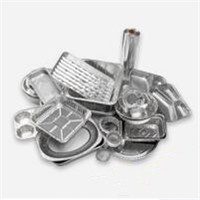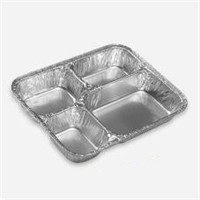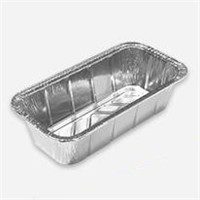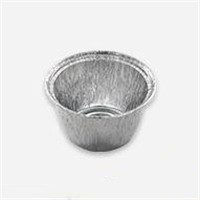Aluminum containers have several impacts, both positive and negative, across various aspects. Let’s explore them:
- Environmental Impact:
- Positive Impact: Aluminum containers have a positive environmental impact due to their recyclability. Aluminum is highly recyclable, and recycling aluminum containers helps conserve natural resources, reduce energy consumption, and minimize waste sent to landfills. Recycling aluminum also has significant greenhouse gas emissions savings compared to primary aluminum production.
- Negative Impact: The production of primary aluminum from bauxite ore involves mining, refining, and smelting processes that can have environmental impacts, including deforestation, habitat destruction, and greenhouse gas emissions. However, the negative impact of primary aluminum production is partially mitigated by the high recyclability of aluminum containers.
- Energy Consumption:
- Positive Impact: Recycling aluminum containers requires significantly less energy compared to producing aluminum from raw materials. The energy savings achieved through aluminum recycling contribute to reducing overall energy consumption and associated greenhouse gas emissions.
- Negative Impact: Primary aluminum production from raw materials is energy-intensive and contributes to greenhouse gas emissions. The extraction and refining processes involved in primary aluminum production require significant energy inputs, resulting in higher carbon footprints.
- Resource Conservation:
- Positive Impact: Aluminum containers contribute to resource conservation through recycling. Recycling aluminum reduces the demand for primary aluminum production, which requires mining and processing of bauxite ore. By using recycled aluminum, the consumption of raw materials is reduced, conserving natural resources.
- Negative Impact: Primary aluminum production requires the extraction and processing of bauxite ore, which can have negative environmental impacts, including habitat destruction and soil erosion. These impacts are mitigated to some extent by the recyclability of aluminum containers.
- Waste Management:
- Positive Impact: Aluminum containers are recyclable, reducing the amount of waste sent to landfills. By properly recycling aluminum containers, valuable landfill space is preserved, and the environmental impacts associated with waste disposal are minimized.
- Negative Impact: If aluminum containers are not properly recycled, they can contribute to waste accumulation in landfills. Improper disposal of aluminum containers, such as mixing them with general waste, reduces the opportunity for recycling and increases the burden on waste management systems.
- Packaging Efficiency:
- Positive Impact: Aluminum containers offer efficient packaging solutions due to their lightweight nature, durability, and protective properties. They help optimize storage, transportation, and distribution processes, reducing resource consumption and improving logistics efficiency.
- Negative Impact: The production of aluminum containers requires the extraction of raw materials, energy consumption, and manufacturing processes. Although aluminum containers are lightweight, their production still contributes to the overall environmental impact associated with resource extraction and industrial manufacturing.
Overall, the impact of aluminum containers is largely positive due to their recyclability, energy savings through recycling, resource conservation, waste reduction, and packaging efficiency. However, it’s important to continue improving recycling rates, promoting responsible production practices, and adopting sustainable waste management systems to further mitigate any negative impacts.











